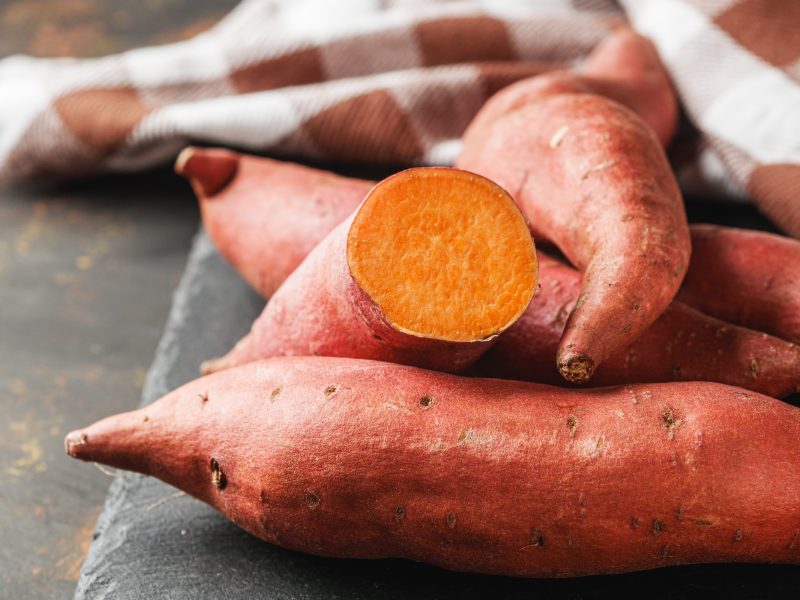They make things seem so interesting, so compelling, so……dramatic! If you
haven’t come across the latest “news” (if you can call it that), this is a
handful of some of the headlines that have been thrown about in reference to a
recent study on the topic.
“Quick! Put down your steak and have a
piece of bread instead!!” – said no one ever. And I’m definitely not about to
say it now.
the I Quit Sugar 8 Week Program forums, where one of the members was asking for
our opinion on the matter. I love me a good scientific analysis, so I decided
to take a look. The problem was that the news pieces seemed to be pointing to 2
different research articles, both on the potential adverse effects of high
protein diets, both in the journal Cell Metabolism, both published this month. It seems the editor of the journal
is either a) On holiday, b) Lacking in creativity, or c) Vegan.
made sense to analyse them both. So, without further adieu, I unapologetically
offer you a somewhat lengthy and detailed analysis of the effects of “high
protein” diets on health. Oh, and if you can’t be bothered reading through the
sciencey stuff, feel free to skip to the bottom where I say “OK, let’s wrap this
up baby”. I won’t be offended at all. Even though I spent a shit-load of time
going through these studies for YOU! I’ll try and intersperse it with interesting, seemingly irrelevant, images. Like this one:
Almost 7,000 US men were studied, consuming
on average 1823 calories per day, with a breakdown as follows:
- Carbs: 51%
- Fat: 33%
- Protein: 16% (most of which was from animal
protein – 11%)
nutrition data is collected on a large scale and broken down into macronutrients
such as this, we have absolutely no idea about the quality of the food. For
example: a McDonald’s Big Mac patty would be on par with an organic grass-fed
steak. In the eyes of the study, they are just sources of “protein”. I wrote a post a couple of years ago on the importance of quality meat HERE (There’s a yummy recipe in the post, too).
The researchers classified participants
into protein intake as follows:
- High = above 20%
- Medium = 10-19%
- Low = below 10%
consumption were positively associated with diabetes-related mortality, but not
associated with all-cause, CVD, or cancer mortality when subjects at all the
ages above 50 were considered”
only death by diabetes in those over 50 is increased as a result of a
[possibly-McDonald’s-patty-filled] high protein diet. OK. I’m not turning veggo yet, are you? Even the
researchers lay out a few caveats, making it seem as though they aren’t too
sure either. They even, very kindly, put things into perspective:
persons without diabetes at baseline”
we can safely put that one aside then. This is an example of a study showing
statistical significance (that is, the computer says it is significant),
however it is not clinically significant (not really relevant in the real
world).
high protein diets, especially high animal protein, increase the risk of
all-cause mortality (death from anything and everything) and cancer deaths in
men aged 50-65. Going back to my first
comment, this could be due to over-consumption of hot-dogs and chicken McNuggets. Who
knows?! I don’t think they do, because the results then do a bit of a backflip:
consumed a moderate-high protein diet actually had a decreased risk of death
from all causes and a 60% reduction in death from cancer.
from the age of 50-65, then you should be a carnivore….hmmm.
 |
| Too far? Have I ruined all credibility with this one? Sorry. Not sorry. |
Not content with what they found in
studying humans from a distance, the researchers decided to pick on some mice
in order to “verify causation and understand the mechanism that may link
proteins to cancer and overall mortality”.
animal studies. Animals are not humans. Humans are not animals**. To verify
causation in humans, a randomized controlled trial (RCT) on humans must be carried
out. Comprendez-vous?
a peek at what they found. After feeding mice on a high vs low protein diet,
and injecting them with cancer cells, they found that 100% of the high protein
group developed cancer, while only 90% of the low protein group met with the
same fate, with 10% wagging their happy little tails in glee at being
cancer-free.
maximum of 20 mice, with 10 in each protein group. Hardly the numbers required
to prove much of anything, don’t you think?
**Note: animal studies are incredibly important to the scientific process. They allow us to test out hypotheses that would otherwise be dangerous, difficult, or unethical in humans (e.g. cocaine use during pregnancy). They also allow tighter control of a number of variables. HOWEVER, rats and mice are different from humans – psychologically, socially, emotionally and physiologically. For example, rats do not have a gallbladder, which is important for the digestion of fat. They also have a very large cecum, which allows them to digest cellulose. Humans are unable to do so.
researchers who wanted to see how different percentages of dietary carbs,
proteins and fats effected longevity in mice. (Note #1 see above re humans not
being mice, but we’ll pretend again for fun, anyway. Are you having fun? I
certainly am….reading through 26 pages of scientific research is AWESOME.
Although I am trying to portray sarcasm right now, if I am to be completely
honest, I am quite enjoying deciphering these studies. I’m such as nerd. But
you all knew that).
different diets (that’s about 34 mice in each group). The little critters were
fed differing amounts of protein (5-60% of total calories), carbs (16-75%), fat
(16-75%) and energy.
this study yet, but if I heard that someone died prematurely from consuming a
diet that was 60% protein, my response would be “no shit!”. In case you were
wondering, I generally would not recommend a protein intake of >25%, but
this is not about what I think….yet.
What they found:
“Median lifespan was
greatest for animals whose intakes were low in protein and high in
carbohydrate, but was not influenced by total calorie intake”
state that these results are consistent with findings from studies on
invertebrates. Great. Now we are being compared to insects.
from about 95 to 125 weeks…as the protein-to- carbohydrate ratio decreased”
(i.e. higher carb, lower protein). Interesting…
And this:
and high in carbohydrate (i.e., those that promoted longest life) were associated
with lower blood pressure, improved glucose tolerance, higher levels of high-density
lipoprotein, reduced levels of low-density lipoprotein, and lower triglycerides”
being good? Not so fast. Let’s remember that their high protein diet was up to
60% of total calories, which any normal, non-juiced-up, human being would have
great difficulty in consuming. And if they are stupid enough to do so, then….a
case of natural selection maybe?
effects of a low protein, high carb diet, including:
- Increased body fat
- Reduced lean body mass
- Fatty liver
So you’ll be an old person, but a fat old
person, with little muscle control to be able to get about your daily life, and
no energy because your liver is screwed. Great! This is reminiscent of statins
(cholesterol lowering meds), which may prevent you from dying of heart disease
(if you are male and have already had a heart attack/stroke), but they’ll
increase your risk of depression, low sex drive and amnesia. I don’t know about
you, but I wouldn’t want to live if I was sad all the time, didn’t want to have
sex, and forgot who I was!
Now, unfortunately these sneaky buggers did
not include the dietary info of the pellets fed to the animals. However, they
did (in very fine print) provide a link to where I could find such info. Being the curious cat that I am, I clicked on
said link and found what I wanted:
- Protein: Casein (found in dairy) and
methionine (found in meat) - Carbohydrates: Sucrose, wheat starch and
dextrinized cornstarch - Fats: Soya bean oil
- Vitamins and minerals were also added for
adequate micronutrient intake
Really?
This constitutes food? Perhaps mice would eat this junk, but this is hardly
representative of ANY form of human diet. Similar to consuming a 60% protein
diet, if your diet is made up of these constituents, then good luck to you
buddy!
Study, where they fed the animals a huge quantity of casein (an isolated
protein in milk). A large proportion of the animals developed cancer. The authors
concluded that animal products cause cancer. This is a problem in so many ways
– casein is an isolated nutrient that no one would ever consume on its own. It
would be part of a whole food (milk) and so the milk-cancer link cannot be drawn
from such a study. Many studies have similar flaws in that they feed animals
ridiculous isolated nutrients, or extremely processed foods (e.g. the studies
that show saturated fat is bad for you often use hydrogenated fats) and
therefore are not representative of a human eating a whole-food diet.
let’s wrap this baby up. Having gone through the
above studies, I think we can safely say that protein, in a reasonable amount
(I would say 15-25% is appropriate, on average), and of decent quality (not
cheeseburgers or a pile of casein) is not going to shorten your lifespan, or
cause disease. Would you agree? Please correct me if I am wrong, but the above
studies have not convinced me to give up [insert yummy animal food here].
- As stated before, multiple times (but
again for those of you who have chosen not to read through my lengthy
analysis), animals are not humans. Animal studies allow us to generate
“hypotheses” (theories), which need to be proven using randomised controlled
trials with humans eating real food. The media tend to grab studies such as
these and blow them out of proportion - There is no one perfect diet that will
suit everyone. Looking at healthy, robust traditional societies (e.g. using the
“Paleo” approach), we have seen that there is a HUGE variety in terms of macronutrient
breakdowns. For example, the Inuit had a predominantly fat diet (from whale
blubber), the Maasai had quite a large amount of protein (from meat, milk,
blood and organ meats), and the Kitavans had a very high carb diet (from
tubers). All of these traditional societies showed optimal health. It wasn’t
about what was in the diet, so much as what wasn’t – processed and packaged
foods and drinks. - It is pretty hard to over-consume
protein unless you are having a large amount of “fan dangled foods” such as
protein bars - We need to look at things in terms of
“whole foods” rather than nutrients or macronutrients. Any given whole food has
a huge array of nutrients contained within it that interact to promote health
in ways we do not completely understand. If we stick to whole foods – lots of
fresh produce (including humanely and appropriately raised animal products),
fresh water and minimal sugar and processed foods, then we are on the right
track to optimal health
I noticed that many of the media articles
implicated the Paleo diet as a harmful high-protein diet. Aside from what I
stated above about there not being just one “Paleo Diet”, I decided to do an
anaylsis on my own daily paleo-friendly diet, which looks like this:
Breakfast: 2 poached eggs, avocado, sautéed
greens and leftover roast sweet potato, bone broth
rice, carrots, greens, pepitas (pumpkin seeds)
broccoli, zucchini and butter
The macronutrient breakdown? Drumroll
please:
- Protein: 20%
- Carbohydrates: 37%
- Fat: 43%
every meal. Hardly what you would call a “high protein” diet. A couple of years ago, this was very different – 70% fat, 20%
protein, 10% carbs, but in the past year I had to change this around a little.
More on this in an upcoming post…..
Phew. That was somewhat exhausting. I’m off to get some sunshine! Till next time, friends! Feel free to post questions in the comments below.




